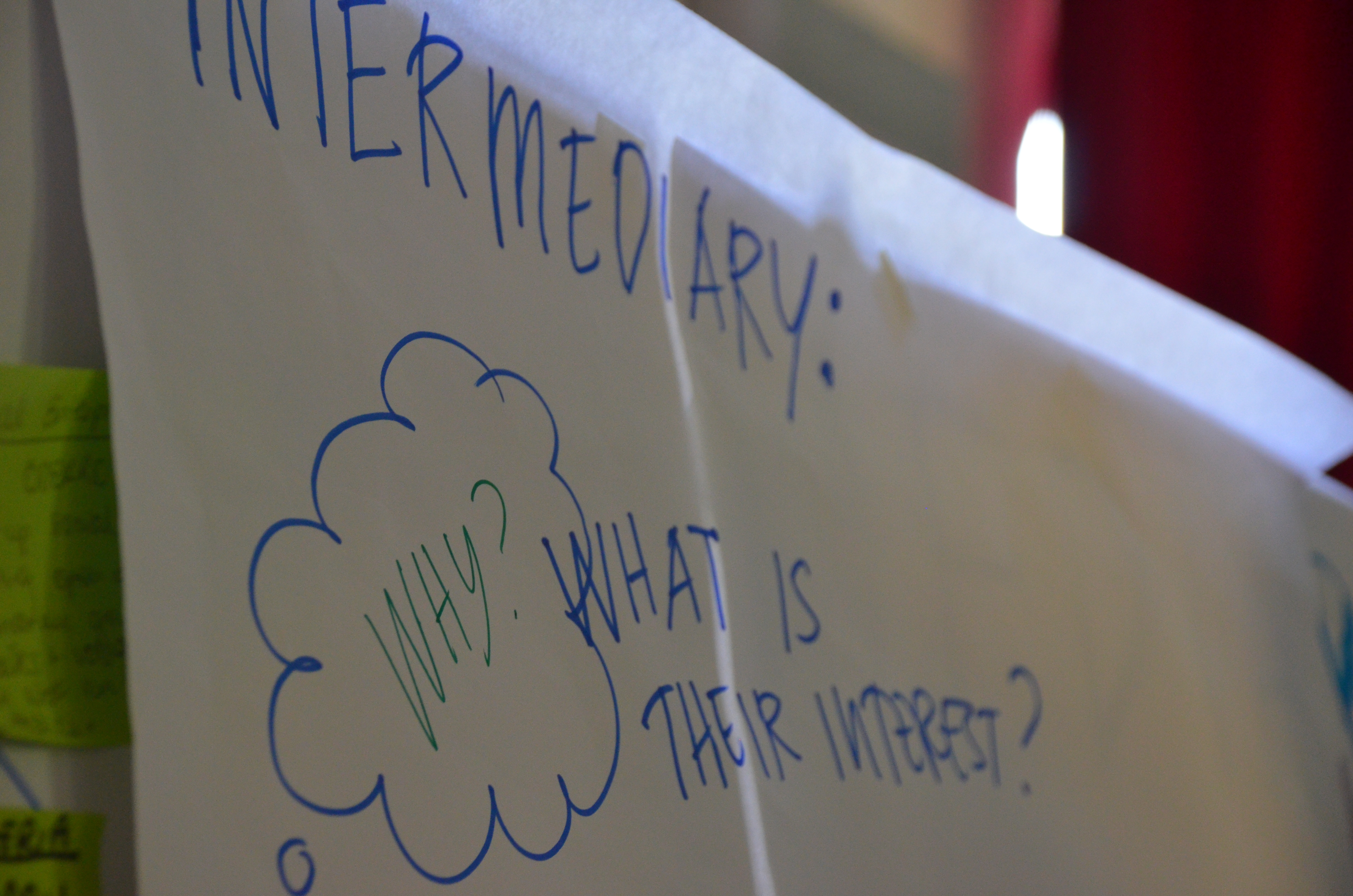(Image Source: https://flic.kr/p/o9EcaJ)
This post examines the order given by the Delhi High Court (DHC), which is the third in a series of worrying orders by the DHC, from the perspective of Intermediary Liability.In order to ensure no possible online access to Bollywood film “Bang Bang” which released on Oct 2, the Delhi High Court on Sep 30 directed Internet Service Providers (ISPs) to block access to around 90 websites which could have streamed, broadcasted or provided online access to the film. The restraint order was passed by the Court on a suit filed by Fox Star Studios, one of the producers of the film. A separate list of 72 websites was submitted to the High Court by the producer, contending that the movie should be unable to be watched on the internet without its permission and 18 other websites were made parties to the suit by the producers. While the order mentioned 90 websites specifically, it brings ‘other websites as subsequently notified by the producers’ within its purview, thereby making it extremely likely for websites beyond those specifically mentioned to be blocked. Further hearing on this matter will take place on Nov 21, 2014.
The concept of ‘Intermediary Liability’ (which has been detailed discussed in detail here) holds the intermediary (ISPs, data sharing websites, blog hosting websites etc) liable for any illegal content hosted by it. In the case at hand, the producers provided a list of intermediaries “likely to host the film and thereby infringe the copyright of the content owner”. The list presented by the plaintiff was of, in its opinion, ‘rogue sites’, the owners of which are never easily identifiable and where the content is made available on the same day as the theatrical release. The plaintiff argued that blocking websites was necessary since in specific webpage based blocked, for every URL of the movie that is blocked, alternative URLs will automatically spring up on sites that haven’t been blocked.
This order is a welcome change from previous cases along similar lines insofar as Justice Manmohan Singh of the Delhi High Court refused to issue an order unless evidence of such “prior copyright infringement” by each site that Fox Star Studios claimed would be likely to indulge in copyright infringement was provided. However, while, Justice Singh’s demand for proof sought to reduce the scope of the list that could have been inexhaustive and even inaccurate, the order that was ultimately issued was a John Doe order. As noted earlier, the order states that “such other websites that may subsequently be notified by the plaintiff to be infringing of its exclusive rights” may also be blocked apart from the truncated list of 90 websites that were finally blocked.
The problem with a John Doe order is that it is aimed at websites that haven’t incurred any liability yet may be blocked on subsequent notification by the plaintiff. The pre-emptive measure sought by the plaintiff without any substantial proof of liability and the subsequent order of the Delhi High Court indicates that while copyright is to be held to a high standard of protection, the standard of protection granted to the intermediaries is astonishingly low. While it is undoubtedly true that illegal content is prolific and coincides with the legal public distribution of the content and results in losses to the owners of the content through theatrical viewing, mindless blocking of every website that might not even host the content or some of which might legitimately host the content on the ground that they can potentially host the content illegally is a complete denial of intermediary immunity.
An even more perturbing aspect is that while the Information Technology (Intermediary guidelines) Rules, 2011, set out under Section 79A of the Information Technology provide for a request-and-takedown procedure for such claims, the same has not been used here, and was not used in the previous circumstances either. Furthermore, the accepted practice is to block only the particular URL which hosts the infringing content and not the entirety of the website, a practice which was accepted by the Madras High Court in the case of R K Productions v BSNL. This standard has been continuously violated by the DHC here.
All the same, while it must be noted that Justice Singh’s order does afford more protection to intermediaries than previous orders and will hopefully set a precedent in that regard, it still fails to meet an acceptable standard of protection on the basis of Intermediary Liability. Broad orders to block websites permit definitional lapses where there is no clear categorization of the websites to be blocked, allowing unrestricted omissions of intermediary protection, which is a dangerous path to follow.
Further readings:
1. Intermediary Liability and the Freezing Effects on Speech: The Indian Predicament, Kartik Chawla, Harvard International Review.
2. Ashok Kumar goes on a rampage – 219 Websites Ordered Down in the FIFA Broadcast case,
3. Delhi High Court’s John Doe Order in Favour of Star News: Need for a Third-Umpire Review of ISP Liability?, Spadika Jayaraj, SpicyIP.
4. CIS Para-wise Comments on Intermediary Due Diligence Rules, 2011, Pranesh Prakash, CIS-India.
5. Intermediary Liability: Protecting Internet Platforms for Expression and Innovation, Centre for Democracy and Technology.
